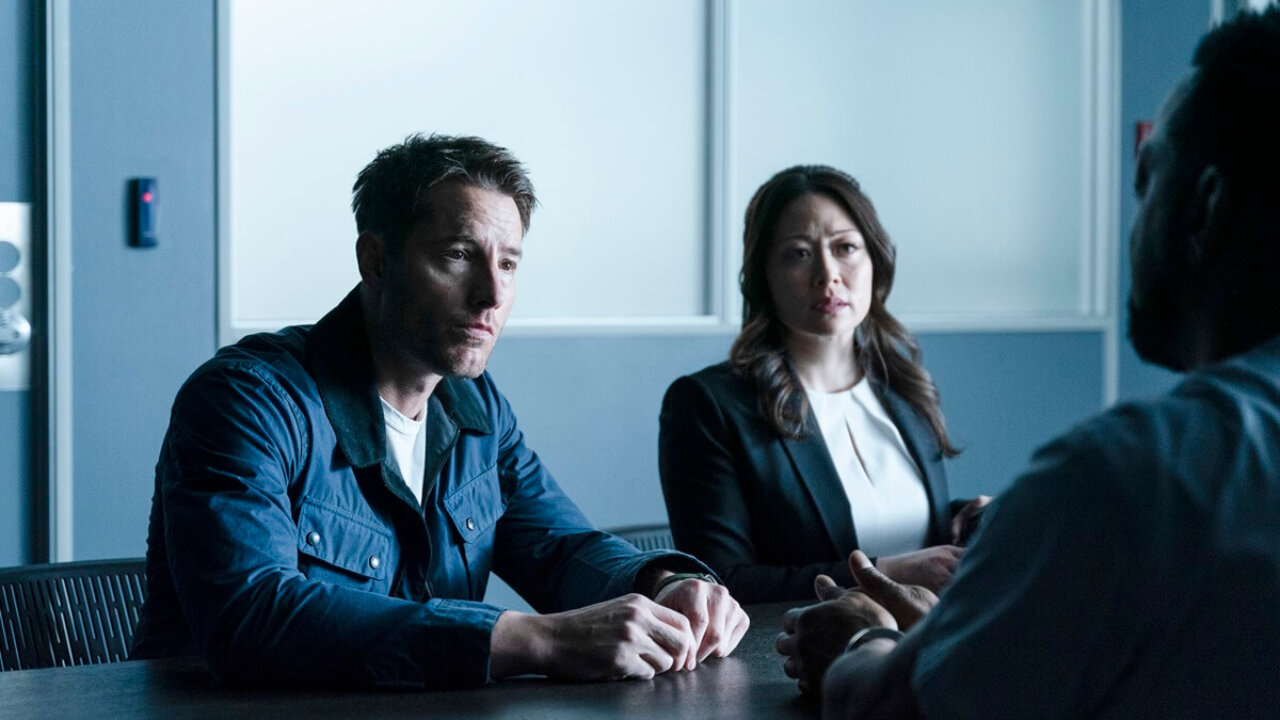
While Reenie and Velma are important cogs to the Tracker machinery and while the showrunner is interested in exploring them further. Reid admits that those stories will take a backseat while he cleans out the Shaw family mess after the latest secret gets out. “In about two weeks, we’ll start talking about all this stuff, but those are the bigger puzzle pieces,” the showrunner says. “The big mess that I have to clean up is what he learned about his mother, and how does he then deal with his brother and his sister? Then we’ll go into all those other storylines and try to figure out how those fit into the season.”
Besides Hartley’s Colter, Tracker has shown us just how much damage the death of Ashton Shaw, despite his perceived paranoia, affected his kids. His eldest son, Russell (Jensen Ackles), is a man of combat, who, until Season 2, wasn’t on the best of terms with Colter, who believed him responsible for their father’s death. While Colter wasn’t speaking with Russell, their only sister, Melissa Roxburgh’s Dory, wasn’t speaking to their mom. For her own part, Mary (Wendy Crewson) was not on the best of her terms with her children except for Colter. Now, with Mary implicated in their father’s death, How does that change her relationship with Colter?
Let’s face it—TV has a long history of giving us idealized families with neat story arcs. But Tracker Season 2 flips that script. It’s raw, messy, emotional, and painfully real. Whether it’s unresolved trauma or awkward reunions, this season doesn’t shy away from the ugly truths of family dynamics—and honestly, it’s refreshing. So, what makes Tracker Season 2 such a compelling watch? Grab your emotional armor and let’s unpack it.
What Is ‘Tracker’ Really About?
At its core, Tracker is a mystery-drama hybrid about Colter Shaw, a loner and expert tracker who helps solve disappearances and crimes. But peel back the action-packed layers, and you’ll find a complex story about identity, loss, and family.
Family Ties Are the Real Mystery This Season
Season 2 isn’t just about solving external mysteries—it’s about uncovering emotional truths. Colter’s relationship with his estranged family takes center stage, and it’s not pretty.
The Sibling Rift That Hits Too Close To Home
Sibling rivalry is a TV trope—but Tracker turns it into a slow-burning emotional arc. The unresolved tension between Colter and his brother Russell feels painfully authentic. It’s not just a “good vs. bad” sibling dynamic; it’s a gray area of resentment, regret, and unspoken love.
Daddy Issues Unleashed
Remember the cold, elusive father figure trope? In Tracker, it’s turned up to eleven. Colter’s complicated relationship with his late father shadows every move he makes. The flashbacks are heartbreaking, and the way they influence his current cases is storytelling gold.
Trauma Isn’t Just A Buzzword—It’s The Plot
Instead of brushing trauma under the rug, this season makes it a driving force. Whether it’s PTSD, childhood neglect, or abandonment issues, Tracker doesn’t sugarcoat it.
Every Episode Is A Piece Of Colter’s Emotional Puzzle
Each case Colter takes on seems unrelated at first—but there’s always an emotional mirror reflecting his personal battles. It’s like therapy, with a touch of danger.
The Writing: Gritty, Raw, And Relatable
The script in Season 2 cuts deeper. The dialogue is sharper, more vulnerable. And the emotional beats? They land like gut punches.
Character-Driven Drama That Packs A Punch
Unlike many procedural shows that forget about growth, Tracker is all about evolution. Characters change, fail, heal, and sometimes, they don’t. That’s real life.
Direction & Cinematography: Visual Storytelling At Its Best
It’s not just the script doing heavy lifting—the camera work and visuals scream emotion. Close-ups that linger. Silences that say more than words. Shadows that hint at unresolved guilt.
Chaos Feels Like A Character
There’s a constant feeling of tension—like something is always about to unravel. It mirrors the instability within Colter’s mind and his family dynamics.
The Role Of “Home” And Why It’s Not Always A Place
Colter’s internal struggle with the idea of home is palpable. He’s always on the move, not just physically, but emotionally. He’s searching for closure, understanding, maybe even forgiveness.
Flashbacks That Actually Add Depth
So many shows misuse flashbacks. Not Tracker. Every flashback in Season 2 serves a purpose—shedding light on a painful memory, filling gaps in character motivation, or deepening the plot.
Why Viewers Are Hooked On The Mess
People aren’t just watching for the mystery. They’re watching because they see themselves in the dysfunction. That’s the magic of Season 2—it mirrors real life, messy and unresolved.
It’s Therapeutic…In A Twisted Way
Ever felt better watching a character mess up worse than you? That’s Tracker. It’s not just entertainment—it’s catharsis.
Mental Health Themes: Subtle Yet Strong
Colter’s mental state is always in flux, and Season 2 leans into it without making him a stereotype. The show respects mental health struggles and portrays them with nuance.
Universal Themes Wrapped In Personal Chaos
Abandonment. Jealousy. Love. Betrayal. Tracker hits all the human notes while staying true to its genre roots.

Season 2 Fixes What Season 1 Missed
More character depth. Better pacing. Richer emotional arcs. Season 2 is everything Season 1 promised—and more.
Viewer Growth Is Proof It’s Hitting Home
Numbers don’t lie. Ratings have gone up. Social media is buzzing. Fans are analyzing every emotional breakdown like it’s a crime scene. Because to them—it matters.
Final Verdict: We Love The Mess
If you’re looking for a tidy, wrapped-up drama, look elsewhere. But if you crave real characters with real emotional baggage—Tracker Season 2 delivers.
Conclusion: Chaos, Catharsis, and Colter—Why We Can’t Look Away
Tracker Season 2 isn’t just about solving missing person cases—it’s about finding pieces of yourself along the way. It shows us that family doesn’t always heal the way we want it to. Sometimes the best we get is understanding, or at least, the effort to try. So yes, families are messy. But in that mess, there’s beauty, growth, and the kind of storytelling that lingers long after the credits roll.